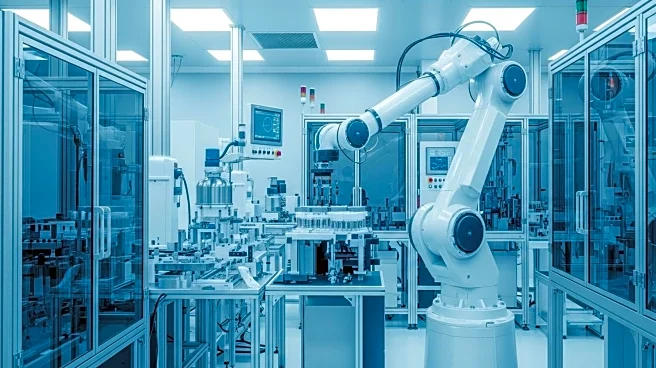What's Happening?
Pharmaceutical companies are increasingly adopting artificial intelligence (AI) to enhance manufacturing processes, aiming for improved success rates and operational efficiency. Companies like Biogen and Sanofi are investing in AI-driven predictive maintenance and deviations management to reduce downtime and optimize yields. Despite the benefits, AI implementation poses challenges such as regulatory compliance, workforce upskilling, and cybersecurity risks. Drugmakers are committed to overcoming these hurdles to leverage AI's potential in manufacturing.
Why It's Important?
The integration of AI in pharmaceutical manufacturing represents a significant shift towards more efficient and adaptive production processes. This transformation could lead to higher yields, reduced costs, and improved product quality, benefiting both companies and consumers. However, the challenges associated with AI adoption, including regulatory and cybersecurity concerns, require careful management to ensure successful implementation. The industry's move towards AI highlights the growing importance of technology in driving innovation and competitiveness.
Beyond the Headlines
The adoption of AI in manufacturing raises ethical and legal considerations, particularly regarding data privacy and the transparency of AI-driven decisions. Companies must navigate these issues to maintain trust and compliance with regulations. Additionally, the long-term impact of AI on the workforce, including potential job displacement and the need for new skills, presents a cultural shift that companies must address to ensure a smooth transition.









